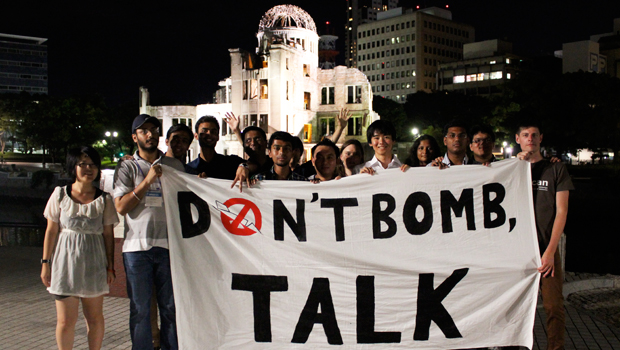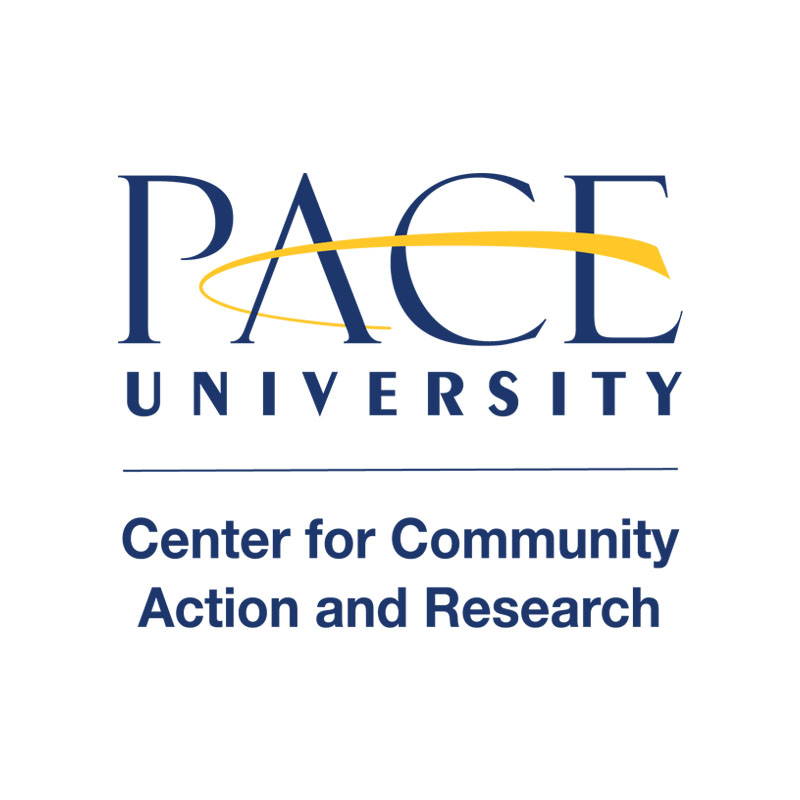Nuclear Weapons: Facing the Humanitarian Costs
On Wednesday, November 18th, the Center for Community Action and Research on the New York City campus hosted our final Common Hour Conversation of the semester, “Nuclear Weapons: Facing the Humanitarian Costs.” Dr. Emily Welty of the Peace and Justice Studies Department and Dr. Matthew Bolton of the Political Science Department co-facilitated an engaging conversation about nuclear weapons in the United States and around the world, a topic that is often overlooked despite its significance. According to ICAN:
- Nine countries today possess an estimated 15,000 nuclear weapons, around 2,000 of which are kept on hair-trigger alert – ready for use within minutes. 1
- A regional nuclear war involving as few as 100 Hiroshima-sized weapons would disrupt the global climate and put a billion people at risk of famine. 1
- A nuclear attack anywhere in the world would overwhelm the health infrastructure, making an effective humanitarian response impossible. 2
- The United States was the first country to develop nuclear weapons and remains the only country to have used them in war. We spend more on our nuclear arsenal than all other countries combined. 3
- There are treaties prohibiting biological weapons, chemical weapons, landmines and cluster munitions, but no such treaty exists – as yet – for nuclear weapons. 4
What can you do? Dr. Welty and Dr. Bolton offered some suggestions:
- Learn about this issue and start to educate yourself about nuclear weapons.
- Work to change the way we talk about nuclear weapons. Don’t accept people telling you that you are not realistic – this is a way of shutting you down.
- Tweet about nuclear weapons using the hashtag #goodbyenukes.
- Join organizations like Ban All Nukes Generation or the International Campaign to Abolish Nuclear Weapons (ICAN). Bonus: start a student chapter!
- Look at Don’t Bank on the Bomb and figure out where your banks and institutions invest your money.
- Reach out to your mayor and connect them to Mayors for Peace, asking them to agree to make your town nuclear free.
- Write to the student paper or to your local paper.
- Hold a public art installation or event, like Bombs No More.
- If you are a member of a faith group, ask your faith leaders to speak out.
- If you are a citizen of a state that has not signed the humanitarian pledge, call the United Nations mission and ask them to do so.
We would also add to check out Pace’s new Peace and Justice Studies Major, which “examines direct, structural, symbolic and environmental violence; social justice; theories and practice of nonviolence and conflict transformation; conflict resolution techniques including negotiation, mediation and facilitation; and interdisciplinary perspectives on peace building and peacemaking.” Thank you to Dr. Bolton and Dr. Welty for engaging the Pace community on this important issue, and for providing this list of ways students can get involved!






